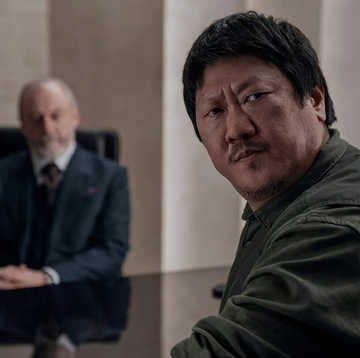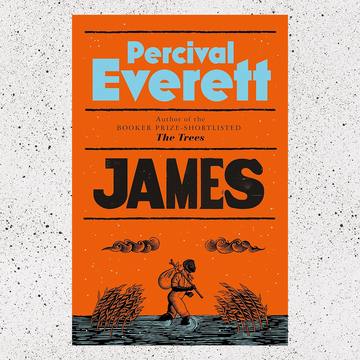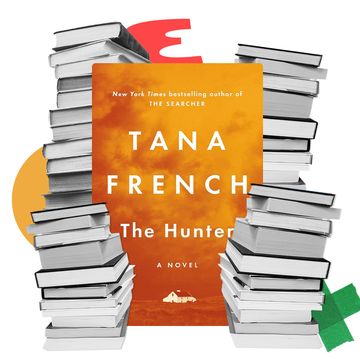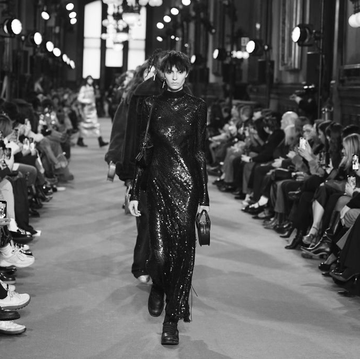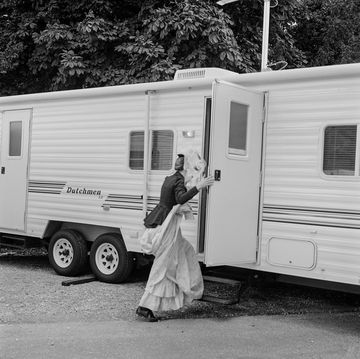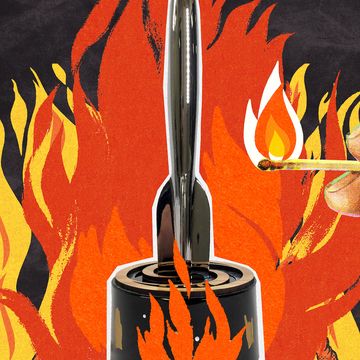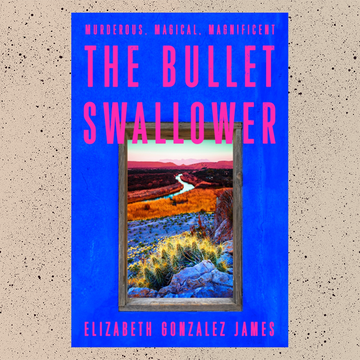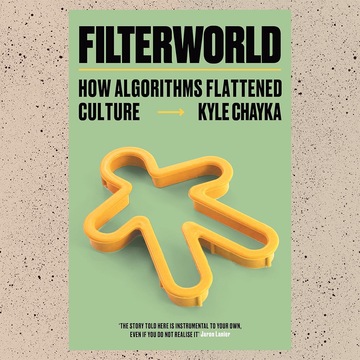With his tremendous fifth novel, Andrew Sean Greer has landed the big fish. Last week, Greer was awarded the Pulitzer Prize for Fiction for Less, an unforgettable comic novel about ageing writer Arthur Less. When his former partner of almost a decade announces his upcoming nuptials on the eve of Less’s 50th birthday, the protagonist cobbles together an international hodgepodge of literary invitations in an attempt to outrun his anguish. Absurdity, heartache, and pure, unfettered, laugh-out-loud joy follow. Greer is a masterful writer who sees the best in humankind, and this novel is no exception.
No one was more shocked to hear the Pulitzer news than Greer, who prior to receiving the good word had been coaxing a pug into polka dot bloomers. Esquire.com spoke with Greer by phone from Italy about his landmark achievement, the myopia of Americans abroad, and the unique pleasures of writing a novel about joy.
Tell about getting the news. Was it a call or an email?
Well, they haven’t contacted me at all.
No way!
Still! I feel like there’s got to be a ceremony, maybe? It’s possible that someone called my U.S. SIM number—I’m on Italian SIM—so a lot of people tried to call me that night. I found out strangely, because I’m so far off on time here, after dinner about 10:30 at night. I work in an artist residency in Tuscany, and a friend of mine was there. He showed me his phone, which was a picture of the San Francisco Chronicle saying that I had won the Pulitzer Prize, and I said, "But it’s not true, you know, one of your friends made that up." And then I looked at my phone finally, and I had a hundred text messages and calls from people who did have my Italian number. So I called Michael Chabon. I thought, “He’s won the Pulitzer. He will know.” He said, “You won the Pulitzer Prize.” And then he said, “Am I the one telling you?” And I said, “Yes, you’re the one telling me.”
It’s almost like you’re a member of the Trump administration. You don’t find out that you’ve been hired or fired until you hear it from another source.
My God. I haven’t thought about that metaphor.
Do you enjoy the irony of including a scene about winning the Pulitzer in what is now a Pulitzer Prize-winning novel?
You know, that was one of the first things I thought of. I thought, how bizarre that I had done that! And it’s not the main character who wins the Pulitzer Prize—it’s the kind of person I imagine winning, which is a well-established, already-famous poet who’s expected to win and is still shocked in the book. I’m certain that’s not why they gave it to me, but I bet it tickled them, as well.
Robert says to Less, “Prizes aren’t love,” which leads me to ask—do you think much of literary prizes? How much or how little value do you think they add to the literary scene?
I don’t like it when we feel in competition. That’s actually what was really, particularly lovely about this, because I wasn’t paying attention at all. There was no long list or short list where you’re disappointed, and there’s no one to feel bitter towards me because it just came out of nowhere. I mean, there could be someone feeling bitter towards me, but we don’t feel the competition with one another, as far as I know. Any prize that interferes with the community is not helping. Those prizes are trying to take something from writers. This doesn’t feel that way because I won, right? But I guess I already had not won. I was tied with whoever won the Pulitzer Prize, and there were plenty of great people who could have won it this year. But prizes, no—they’re not love.
This book seems so effortless when you read it but, of course it wasn’t. What was difficult about writing this book—other than the obvious answer, which is everything. Where did you get stuck and how did you get unstuck?
I am so glad it seems effortless, because that’s what I wanted. During every book, I have a nervous breakdown. Usually it’s about two thirds of the way through the book—I’m just comatose on the couch for at least a week, and I eventually break through it and have an answer about how to fix the thing. The nervous breakdown happened here before I wrote the book. I front-loaded the nervous breakdown, which made the writing much easier.
The hard part was actually just deciding to make it a comedy, which it was not at all, at the start. It was a serious, poignant, wistful book about a gay man growing older, and I just couldn’t go on—the pity wasn’t in me for it. One day, I thought, What if I just made the whole thing funny? That’s always what the crisis is about—how do you get deeper into what you really want the book to be? That got me closer to the emotion of the book. And then it was, while not effortless, it was a hell of a lot of fun.
I’ll add my voice to the chorus of voices who speak so highly of your gorgeous sentences. Your voice shows such a deep love of and curiosity about language. When you write, are you deliberately tinkering with and pushing language? Is that something you enjoy?
That’s the daily pleasure for me. That’s the hit I get every day that brings me back—to feel great about a sentence. I’m glad to hear that, but I also like it just fine if readers don’t notice that, if they just feel like the book flows over them. I thought a lot about the shape of the sentences so that they move musically. I can’t go on if I feel I’ve written something clunky. It’s the only pleasure I get. You write three pages over six hours and you don’t feel like you’ve gotten anywhere, but if you’ve done a beautiful metaphor or a lovely sentence, or you finally got to some moment you wanted, then that’s worth it. Then you can close your computer and get a little relief.
Have you ever felt pressure or criticism from the sort of Hemingway camp of writers—the more sparing prose stylists?
I don’t think they pay much attention to me. Well, I think they will now. They used to accuse me of overwriting, and I think that was the fun of this book. There are definitely overwritten parts, but it’s a joke. The sentences go way longer than they should with much more ornate metaphors; those were great fun to write. But the humor is that it’s too much. I found a way to use what I knew could be a flaw and make it structurally necessary. I don’t know why I can’t be spare, but I just can’t. I decorate my home like a Portuguese widow. What can you do?
You tweeted that the hardest thing to write about is joy, and that you took that as a challenge in conceiving this book. Do you feel that fiction is often short on joy, or that we’re living in a time of joyless fiction?
That’s hard to say. When joy comes, it’s hard won. It happens in poetry, though you don’t think of poets as being that way. They're ecstatic about things but brutally honest, and that’s a great way to get to delight. You can look at my books and not find particular joy on every page because of course what you want to write about is the difficulty of the human experience. You don’t want to lie about things to make happy endings and weddings if they don’t deserve to happen. But I would be lying if I didn’t try to communicate some of the pleasure of being alive. Proust is a downer, but on every page, it’s full of ecstasy of description. He clearly loved the world; it’s just that the romance doesn’t work out.
What were your strategies for solving the inherent challenge of writing about joy and delight, given that the dictum that so many writing teachers tell us about how with happiness, nothing happens?
I thought that I would take things away from Less one at a time, and that only if I really, really tore him to nothing could I reward him. Things don’t get that bad for him—you know from the tone of the narrator that things will turn out okay. But that was my strategy. I even fought with my editor because I had a whole paragraph about how bad in bed he was. And she said, “You can’t make him bad in bed! It’s too awful.” And I said, “Okay, I’ll make him different in bed.”
It was so refreshing and emotional to see the book end with Arthur triumphing over his self-loathing. And getting the guy in this wonderful, swelling, romantic conclusion. Were you always writing toward a happy ending?
I was. That’s the other challenge that I didn’t quite know that I was doing. With the first version, I told myself that I wanted there to be a gay love story that I would enjoy and that wouldn’t feel dramatic. But it would be like other love stories, and by love I don’t mean romance—I just mean the books we love. But I threw that novel away, and then I was writing this, and at one point I realized that maybe I could do that with this one. I really wanted the reader to, to feel happy. I reworked that last part so many times to try to get the timing right because the reader would pick up on what was happening and get excited just before they found out. Happy endings don’t happen much in books, so I worked really hard to try to pull it off.
Was it freeing to break out of the ambiguous or unhappy ending that writers of serious literary fiction so often have to run toward?
Yes! I knew from the beginning that I was writing from first person, so I knew how things were going to turn out. I didn’t quite know how I was going to pull it off, but throughout the book when I have the narrator speaking, I knew it was ultimately a love letter being written. And that was great fun. I didn’t have the burden of having to have some serious ending. I discovered in the process that I actually could make the ending shorter than in other books of mine, because it didn’t need the justification. It could just happen. I’m sure some people would say it could be even shorter.
Were you concerned about being sentimental? To me, the tone is pitch perfect, and in a way, you can’t have a love story without sentimentality. But I’ve heard you say that sentimentality is something you’re very drawn to, for better or for worse.
You know, I felt because it was a comedy, I could get a lot closer to sentimental and not worry as much about it. That a reader would be forgiving, because you can get away with more when you’re in the mode of talking about delight and happiness. That said, I think my first draft probably went too far. But you need to go too far. It’s better to just put stuff in instead of just erase it. You won’t believe me about this, but I really thought no one would read this book. That’s very liberating. Because I thought, “I’m just gonna write the book I really want to. And not worry.” No one was reading me anyway.
One of the most breathtaking scenes in the novel for me was the scene about doubt and living with genius. How do you cope with and overcome doubt?
I’m glad you liked that. That’s the only part that remains from the first serious version of the book. I put it in unchanged, and you can tell. It’s not funny. I’ve never lived with genius—my husband will hate me for saying that. But I know about doubt. Every writer knows. Overcoming it is the big struggle. And then at one point, something overflows in you and drowns the doubt. And then you go forward. And then the next day, you have to do it again. I do think doubt is important in shaping things. Otherwise, you’d get books that are all ego or big, terrible, arrogant mistakes. And in this book, even after my editor gave me my notes, I had a crisis. That something was wrong with the timing; I knew something was wrong. I cut an entire chapter set in Vietnam; it took a really good couple of weeks for me to just think that. But it was wonderful once I’d done it.
Did this story always have the frame of the mysterious narrator, even when it was a more serious novel?
I don’t think so. It’s a structure that I borrowed from Nabokov in Pnin. He does something very different with it, something much more scathing about the main character. The narrator is someone who is not a fan. But even at t the end, there’s this moment of unaccountable joy. And it’s wonderful because you see this poor, wretched man fail over and over.
Arthur Less is such a distinctive and fully realised character. His quirks, his mind, his self-doubt, his physicality. How did you craft someone that unique?
Of course some if it comes from me, yet I don’t think of it as being me. I think a lot would laugh at that idea, but honestly, I would steal lots of details. Like, when I would think about the most humiliating thing that’s ever happened to me or what the most shameful thing I’ve ever said was. But the way he moves arounds the world isn’t really me, though he really did become someone I enjoyed being around.
Do you think you’d want to spend time with him if he was real?
Sure!
Maybe not travel with him.
He makes it through really well, despite everything. People really treat him nicely.
I wouldn’t call him an idiot abroad, but he does have his share of misadventure. You’ve traveled widely in your life. Is this your experience of how Americans act and are viewed abroad? Sort of bumbling fools falling into traps of their own making?
I do think that Americans do not understand that things are done differently in other parts of the world, and that the other ways people do things are equally accurate ways to do things. Someone else just came up with something different. Americans often think that’s funny, but often it’s the American who’s funny. They’re the one who’s in the wrong place doing the wrong thing. To have any attitude except that you’re wrong again about other people is a mistake. I think that’s what he does. He just keeps getting it wrong. But luckily, he realises.
As Arthur encounters misfortune after misfortune, I think you very miraculously steer clear of making us pity him. Instead what we feel is something very warm and empathetic about the human comedy. How did you avoid making him too pitiable and leave us rooting for him?
Well, that’s a mystery. See, I guess he’s a loser. But there’s a certain point with a loser where you just don’t want to be on their side. In high school, you just can’t stand next to the losers. Other people don’t treat him like he’s a loser, though. So, it’s not like he’s a terrible outcast. And he’s not judgmental. He’s not someone who blames his mistakes on other people. I hope he’s got a kind of charm. He’s not stupid, and he might be a great writer. We never get to know.
Michael Chabon told you that winning the Pulitzer means that now you get to write what you want. Can you spill anything about what you’ve got coming up or what that dream project is?
All I can say is that I really enjoy writing in this comic mode. And I’m continuing that way.
Adrienne Westenfeld is the Books and Fiction Editor at Esquire, where she oversees books coverage, edits fiction, and curates the Esquire Book Club.





